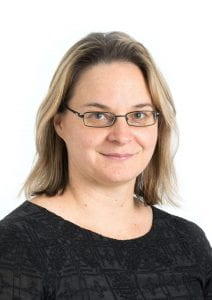Tena Kotou Katoa,
The Centre for Cancer Research (CCR) is proud to invite you to the next seminar in their new 2022 Seminar Series, which will be on Friday 13th May at 1pm.
This will be a ‘Show & Tell’ event, in which we will showcase some of the fantastic research programs and scientific platforms that are being developed and led by members of our research community. Each speaker will give a short ‘elevator pitch’ style presentation, followed by a brief Q&A session.
At the end of the seminar (2pm), we will host a 30-minute networking and discussion event over Zoom for those who wish to attend, allowing you to engage with our speakers, ask questions and establish new collaborations. This event is designed to inspire you, to inform you, and to help connect you!
We are so pleased to announce our fantastic line-up of speakers, and are excited to provide a forum in which we can promote and support the incredible research being done by our members. Thank you to all those willing to participate in this event, and we look forward to a session of great learning and discussion.
Ngā mihi maioha,
The Directors of The Centre for Cancer Research
Speakers for this seminar include:

Dr Michelle Wilson
Medical Oncology, ADHB
Talk title: The GENIUS database for NGS panel – using genomic results to enable biomarker directed trials and research.
Abstract: Genius is designed to help understand what testing is underway across NZ and develop a platform for us to use this information to create opportunities to people with cancer through research. This is a feasibility project which we hope will shape our precision medicine direction and also enable involvement in international collaborations.

Dr Nick Knowlton
Molecular Medicine & Pathology - University of Auckland
Talk title: Machine learning for translational science
Abstract: Machine learning and artificial intelligence (AI) are everywhere in the scientific literature. Is this just a fad or are we in a new era of computationally informed medicine? This talk will be a rapid-fire look at how machine learning is being used to predict clinical events, drug response, create biomarkers, and examine embryonic timelapse images. We will examine some common drawbacks and advantages of machine learning and discuss how and why these techniques might be helpful to your research.

Dr William Schierding
Liggins Institute
Talk title: Noncoding mutations as novel drivers of cancer
Abstract: Amongst 3 billion bases of DNA lurks some 10 million points of genetic variation, a substantial number of which contribute to cancer risk. Around two-thirds of those cancer-associated genetic variants are in non-coding regions of the DNA. The connection between non-coding variants and the mechanism driving each cancer type is a major challenge, leaving genetic diagnosis tricky and early remediation nearly impossible. In this talk, I aim to introduce you to novel methods for querying the impact of non-coding mutations, defining new patterns of recurrent mutational signatures, and identifying novel non-coding drivers of cancer.

Dr Gemma Pugh
National Child Cancer Network
Talk title: The New Zealand Child Cancer Registry (NZCCR)
Abstract: The NZCCR is a national cancer registry held by the National Child Cancer Network containing childhood cancer data provided by specialist paediatric oncology centres in New Zealand. Data recorded in NZCCR includes demographic details (date of birth, domicile, sex, ethnicity), cancer diagnostic information (ICD-O morphology, ICD-O site, basis of diagnosis, laterality, stage/risk group), child cancer classification (ICCC-3 group), predisposing conditions, cytogenetics, relapse, second malignancies, treatment, clinical trial enrolment and long-term health events (LEAP follow-up data). NZCCR data is available for research exploring the outcomes of children with cancer in New Zealand.

Braden Woodhouse
Oncology
Talk title: Developing an online Data Management Plan for genomics research
Abstract: A Data Management Plan (DMP) records all aspects of your research program involving data; ethical considerations, learning needs of staff and postgraduate students, Te Tiriti responsibilities and Māori Data Sovereignty principles. A DMP also ensures that access to data is future-proofed, organised, and reusable, with a defined long-term plan for data storage/deletion and clear team responsibilities for data management. This talk will give a brief overview of an online tool designed to make writing DMPs easy, with an opportunity for questions and a live demo in the Zoom breakout room afterwards.
Schedule for speakers
1.00 – 1.05pm: Introduction & housekeeping
1.05 – 1.15pm: Dr Michelle Wilson
1.15 – 1.25pm: Dr Nick Knowlton
1.25 – 1.35pm: Braden Woodhouse
1.35 – 1.45pm: Dr Gemma Pugh
1.45 – 1.55pm: Dr William Schierding
2.00pm – 2.30pm: Networking and discussion event on Zoom
